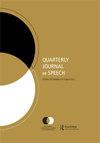敌对的公众:Facebook和公民陌生感的丧失
IF 1.5
2区 文学
Q2 COMMUNICATION
引用次数: 0
摘要
在被批评在2016年美国总统大选中传播虚假信息后,Facebook宣布了“以隐私为中心的社交媒体愿景”。据称,为了减少用户新闻推送中的错误信息,这些技术和修辞上的改革将用户从网站面向公众的区域转移到私人群组。值得注意的是,这些改革创造了围绕越来越与陌生人的观点脱节的观点组织起来的团体。因此,这些变化促进了宣传,助长了QAnon阴谋、民兵组织招募和右翼暴力。为了理解这种危险的激进化,我们明确指出,公众依赖于构成他们的观点——数据。在澄清公众根植于doxa的过程中,我们揭示了社会技术组合——尤其是私人Facebook群组——是如何创造我们所谓的敌对公众,或由adoxa组成的公众:反社会的、高度庇护的、不可能的、通常是不可靠的观点。具体来说,我们探讨了Facebook基础设施的支持如何使参与者远离奇怪的doxa,即公众的核心,而不是促进话语停滞和对他人的暴力取向。这些敌对的支持与男性白人民族主义和其他危险意识形态的修辞实践相一致,并使之更加大胆。最后,我们提出了内容性网络作为对危险和反民主的敌对性社交媒体的有效纠正的可能性。本文章由计算机程序翻译,如有差异,请以英文原文为准。
Adoxastic publics: Facebook and the loss of civic strangeness
ABSTRACT After being criticized for promoting misinformation in the 2016 US presidential election, Facebook announced a “privacy-focused vision of social media.” Purportedly to decrease misinformation on users’ newsfeeds, these technical and rhetorical reforms moved users away from public-facing areas of the site, funneling them into private groups. Significantly, these reforms created groups organized around opinions increasingly disconnected from strangers’ views. Consequently, these changes facilitated publicities that fostered QAnon conspiracies, militia group recruitment, and right-wing violence. To understand this dangerous radicalization, we make explicit that publics are dependent on the opinions—the doxa—that constitute them. In clarifying that publics are rooted in doxa, we reveal how sociotechnical assemblages—particularly private Facebook groups—are creating what we call adoxastic publics, or publics made up of adoxa: asocial and highly sheltered, improbable, and often disreputable opinions. Specifically, we explore how the affordances of Facebook’s infrastructure divorce participants from encountering strange doxa, the heart of publics, instead promoting discursive stagnation and violent orientations towards others. These adoxastic affordances align with and embolden the rhetorical practices of masculine white nationalism and other dangerous ideologies. We conclude by offering the possibility of endoxastic networks as a productive correction to dangerous and anti-democratic adoxastic social media.
求助全文
通过发布文献求助,成功后即可免费获取论文全文。
去求助
来源期刊

Quarterly Journal of Speech
COMMUNICATION-
CiteScore
1.80
自引率
36.40%
发文量
39
期刊介绍:
The Quarterly Journal of Speech (QJS) publishes articles and book reviews of interest to those who take a rhetorical perspective on the texts, discourses, and cultural practices by which public beliefs and identities are constituted, empowered, and enacted. Rhetorical scholarship now cuts across many different intellectual, disciplinary, and political vectors, and QJS seeks to honor and address the interanimating effects of such differences. No single project, whether modern or postmodern in its orientation, or local, national, or global in its scope, can suffice as the sole locus of rhetorical practice, knowledge and understanding.
 求助内容:
求助内容: 应助结果提醒方式:
应助结果提醒方式:


